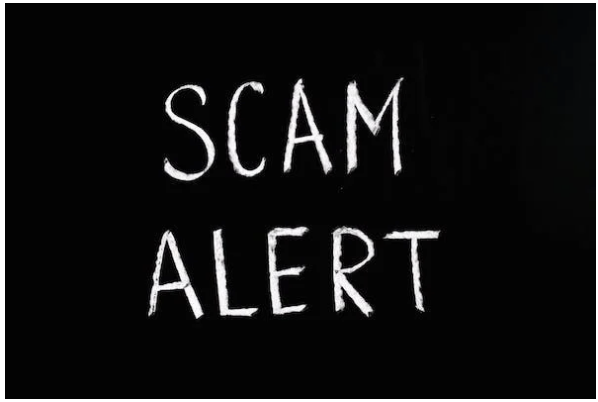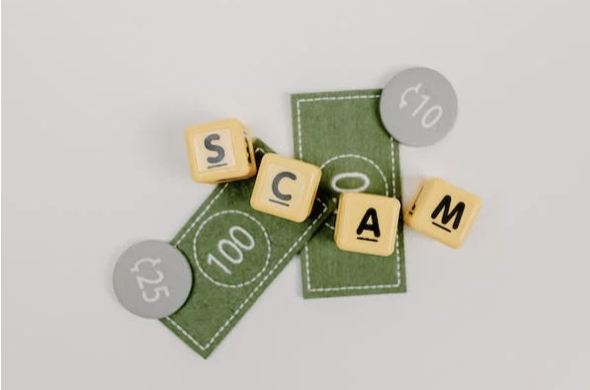Got Scammed! Here is What You Should Do
23 Aug 2024
15 Aug 2024
min read

Got Scammed!
Here is What You Should Do
As technology continues to advance, it has undoubtedly brought numerous benefits to our lives and society. However, it has also inadvertently led to an increase in fraud and scams. While learning how to protect yourself from scams is important, knowing what steps to take when you become a victim of a scam is crucial as time becomes of the essence in such situations. Instead of panicking, this article aims to equip you with the legal knowledge and practical steps to effectively respond to and recover from a scam.
Step 1: Spotting a Scam
Before you can report a scam, you have to be able to spot it. Common scams in the 21st century include phone scams, investment scams and online scams, with the majority targeting the elderly or members of the community who are not familiar with the use of digital devices. To make sure scammers cannot get what they want, here are signs of a scam you may want to look out for:
- Suspicious Phone Calls/Messages: Modern scammers often pretend to be from an organization you know. Oftentimes it can be a governmental organization, a charity or even a family member. If you have suspicions about the objectives of a particular call/message, or if you are unsure about the caller or massager’s identity, make sure to fact-check with reliable sources. Researching online databases for junk or blacklisted phone numbers may be the first step to identity a scam. If necessary, contacting a family member to verify the truthfulness of the call/message is also a recommended option.
- Unfounded Problems/Promises: Scammers tend to trick people by saying that they are in trouble, or that they have won a prize and are now required to claim it. If you find yourself in one of these situations, do NOT respond immediately. Be it an emergency or a lottery prize, think twice about its credibility. Contact a friend or family member to verify the existence of the emergency/problem. If you have never entered a lottery or sweepstake before, the message is very likely a scam.
- Unrealistic Pressure: Scammers want you to act before you have time to think. In order to catch you off guard and get your payment as soon as possible, it is common for them to threaten you about certain consequences, from corruption of your digital devices, to arrest of you under alleged charges in some cases. Do NOT panic when encountering such threats. Evaluate whether they are founded and reasonable, oftentimes scammers make up stories just to intimidate you and get you into paying.

Step 2: Reporting the Scam
If you have been scammed, report to the police. Victims whose money has been transferred overseas may also consider reporting to the police there. By reporting to the police, you will be able to receive guidance on the next steps, as well as have your case known and handled by professional bodies.
It would also be wise to report the scam to the relevant bank, for the purpose of freezing related bank accounts and stopping any mistaken money payment or transfer (which would be elaborated below). In any event, the report to the bank is also helpful in establishing your claim in civil action for recovering of the lost money.
If you have been scammed online, you should report to the website or responsible parties as well. By alerting the relevant people-in-charge, future scams or frauds can be prevented.
Step 3: Recovering the Stolen Money
There are a few ways with which you can try to recover your stolen/scammed money. It should be noted that the choice of solution should depend on the actual facts and circumstances.

Request to the Bank for Not Honouring any Payment or Transfer: In less urgent cases, you may contact your bank to stop the mistaken payment or transfer. If, unfortunately, the mistaken payment or transfer has completed, you may contact your bank to stop any further money payment or transfer out of the scammer’s account.
In any event, the report to the bank is helpful in establishing your claim in civil action for recovering of the lost money.
Obtain a Letter of No Consent from the Police: In many cases, the police may liaise with the relevant bank and request, with a letter of no consent, to temporarily freeze your bank account by explicitly stating that they do not give consent for your bank to proceed with any fraudulent transactions. This may not be a formal freezing order at law, but most banks will likely comply in fear of violating anti-money laundering legislations. This can help protect your money while the investigation is underway. It should be noted that the ‘freezing’ process may take a few days to complete.
Seek an Urgent Ex Parte Injunction. If there is a need for immediate action and a risk of significant financial loss or irreparable harm, you may opt to seek an urgent ex parte injunction. This allows you to freeze the relevant bank account or the scammer’s assets before the money is dissipated. This legal measure is typically served directly on the bank and can be effective within a shorter time frame, usually within 2 days. However, it should be noted that an urgent ex parte injunction is generally a more costly option and should be considered if there is a lack of response or inaction following your police report.
If you opt to seek an urgent ex parte injunction, you may at the same time apply for ancillary disclosure orders against the bank and the defendant scammer(s) for details of any subsequent transfers.
Commence Civil Action: The above solutions will NOT automatically give the victim priority over the frozen money or the right to request the relevant bank to release the money back to him or her. Instead, a civil action against the scammer(s) has to be lodged for the lost money to be recovered. At this stage, you may consider seeking formal legal advice from a law firm. As scammers rarely defend such a claim against them, a default judgment will be sought in most situations. After a judgment is obtained, you may request the bank to release the money pursuant to the court order.
|
Key Takeaways:
|
Frequently Asked Questions:
Q: What are the most common types of scams ?
Cyber fraud has become more and more seriously in recent years. Online fraud schemes have become more sophisticated than before. Common online scams include romance and online dating scams, online shopping scams, business loan scams and other impersonation scams.
Q: How can I report a scam?
There are several ways with which you can report a scam. In Hong Kong, for example:
- Contact the 24/7 Hong Kong Police Force Anti-Deception Coordination Centre hotline for further guidance (+852 18222)
- File a report with the Hong Kong Police Force at the nearest police station
- File an online report via the Hong Kong Police Force via their online portal (e-Report Centre, Report Technology Crime and Deception)
Q: How can I safeguard my personal information from being used by scammers?
Common ways to protect your personal data:
- Create strong passwords and frequently update or change them
- Prevent oversharing personal information on social media
- Be cautious when using free Wi-Fi in public areas
- Watch out for links and attachments, avoid downloading files from unknown or unreliable sources
- Make sure a website is secure before browsing it
- Constantly update your devices and strengthen your firewall protection
Q: Are there any legal measures I can take to prevent scams or pursue scammers?
While there are generally no laws to prevent scams from happening, we can equip ourselves with sufficient knowledge and take precautions to identify red flags that may belong to a scam.
If, unfortunately, you have fallen victim to a fraud or a scam, you may commence a civil action to pursue the scammer(s) and recover any lost and stolen money.
DocPro - We are dedicated to providing simple and efficient business solutions to parties that want to create tailor-made documents for their business needs. Click on the logo and check out our documents and templates!
Keywords:
